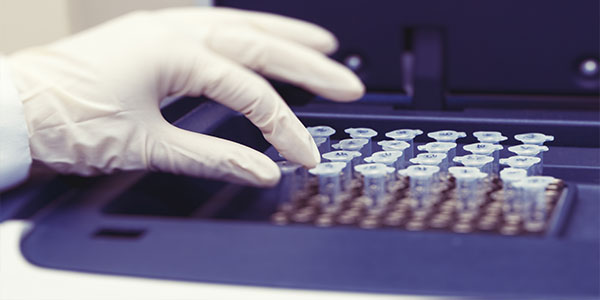Artificial insemination, aka intrauterine insemination (IUI), involves two key steps:
- Ovulation Induction
- Insemination
Get personalized, coordinated care across Northern California through the Sutter network.
View Patient ResourcesMake appointments, message your doctor and more through our patient portal.
Enroll NowAccess award-winning, comprehensive primary and specialty care for your whole family.
View All ServicesOur contributions to medical research and education lead to better healthcare outcomes.
Research at SutterJoin our robust training programs led by nationally known healthcare leaders.
Explore OpportunitiesExplore the ways we provide innovative, compassionate care through our network.
Learn About Sutter HealthShape the future of healthcare and build your career within our diverse teams.
Find Jobs
Get personalized, coordinated care across Northern California through the Sutter network.
View Patient ResourcesMake appointments, message your doctor and more through our patient portal.
Enroll Now
Make appointments, message your doctor and more through our patient portal.
Enroll NowAccess award-winning, comprehensive primary and specialty care for your whole family.
View All ServicesOur contributions to medical research and education lead to better healthcare outcomes.
Research at SutterJoin our robust training programs led by nationally known healthcare leaders.
Explore Opportunities
Join our robust training programs led by nationally known healthcare leaders.
Explore OpportunitiesExplore the ways we provide innovative, compassionate care through our network.
Learn About Sutter HealthShape the future of healthcare and build your career within our diverse teams.
Find Jobs
Shape the future of healthcare and build your career within our diverse teams.
Find JobsArtificial insemination, aka intrauterine insemination (IUI), involves two key steps:
Fertility specialists use ovulation induction—also called controlled ovarian hyperstimulation (COH) or ovarian stimulation—to improve pregnancy chances by intrauterine insemination (IUI) or in vitro fertilization (IVF).
The technique involves the controlled stimulation of the ovaries by medication to increase the available number of eggs that can be fertilized per cycle. The method also involves precise timing of insemination, when sperm is placed directly into the uterus.
Your doctor will determine a set sequence of medications, usually including Clomid (clomiphene citrate), follicle stimulating hormones (FSH) or human menopausal gonadotropins (hMG), to induce ovulation and development of multiple eggs.
Depending on the medications, they can be taken orally or given as shots beginning on the third day of the cycle and continued until it is time to induce ovulation. In addition, you may receive another medication, GnRH antagonist, daily by injection or by nasal spray to enhance the ovarian response. If you take medications at home, we will help you learn how to inject them.
These extensively used medications are typically safe and effective when administered with careful supervision. While you’re taking medications to induce ovulation, your doctor will carefully monitor your response to ensure your safety and improve induction success. In addition to physical exams, you’ll receive:
We hope to obtain two to four eggs capable of ovulation per cycle. If more than four eggs develop, your doctor may recommend cancelling the cycle due to the risk of multiple pregnancy or ovarian hyperstimulation syndrome (OHSS), a condition characterized by enlarged ovaries, fluid retention and weight gain.
Your doctor may also cancel an ovulation induction/IUI treatment cycle due to:

Artificial insemination (AI) refers to the technique of placing sperm directly into a woman’s reproductive tract. Typically used for couples dealing with male fertility problems, AI also enhances the pregnancy rate in couples with unexplained infertility when combined with ovulation enhancement.
With intrauterine insemination (IUI)—the most common type of AI—doctors use a small catheter to place sperm past the cervix and high into the uterus, greatly increasing the number of sperm that may potentially meet an egg. (During intercourse, for every 14 million sperm deposited into a woman’s vagina, only one to 10 reach the fallopian tube.)
In cases of severe male infertility, ejaculation issues or an absent male partner, you may consider insemination with donor sperm. Numerous reputable sperm banks allow you to choose from detailed characteristics among donors. When choosing a sperm bank, look for one that adequately prescreens donors, especially in regards to genetic and viral testing.
Sperm Preparation and Insemination
You’ll need a semen sample on the day of insemination. Please check with your cycle coordinator or doctor for specific instructions, but here are some general guidelines for men to follow:
Laboratory technicians prepare the semen sample using specialized techniques that allow them to collect the most motile (active) sperm. This usually takes about two hours. Afterward, the specimen remains stable for a few hours when kept at 98.6 degrees F.
After sperm is inseminated into the uterus, some women experience mild cramping, but the procedure is usually painless and takes only one to two minutes. You’ll then rest quietly for 10 minutes before you leave the exam room.
Check-ups, screenings and sick visits for adults and children.
Expertise and advanced technologies in all areas of medicine.
For serious accidents, injuries and conditions that require immediate medical care.
After-hours, weekend and holiday services.
Convenient walk-in care clinics for your non-urgent health needs.